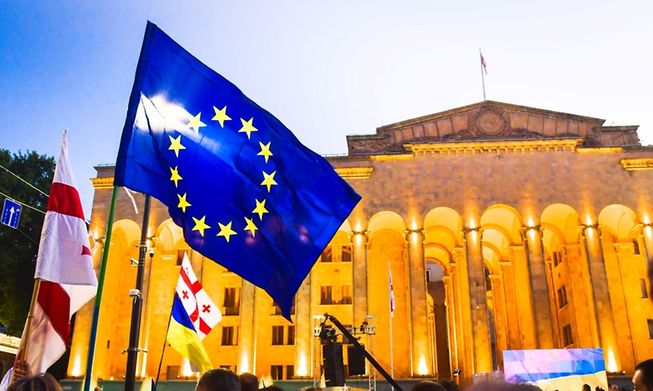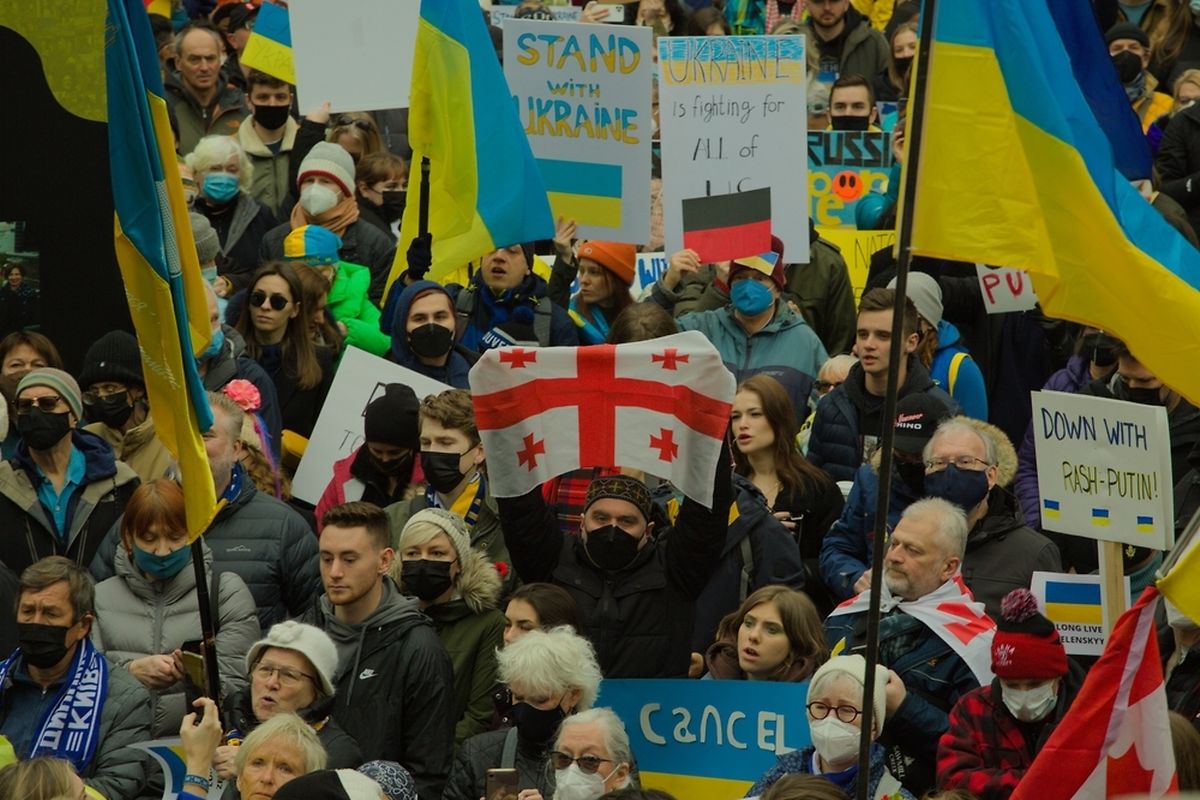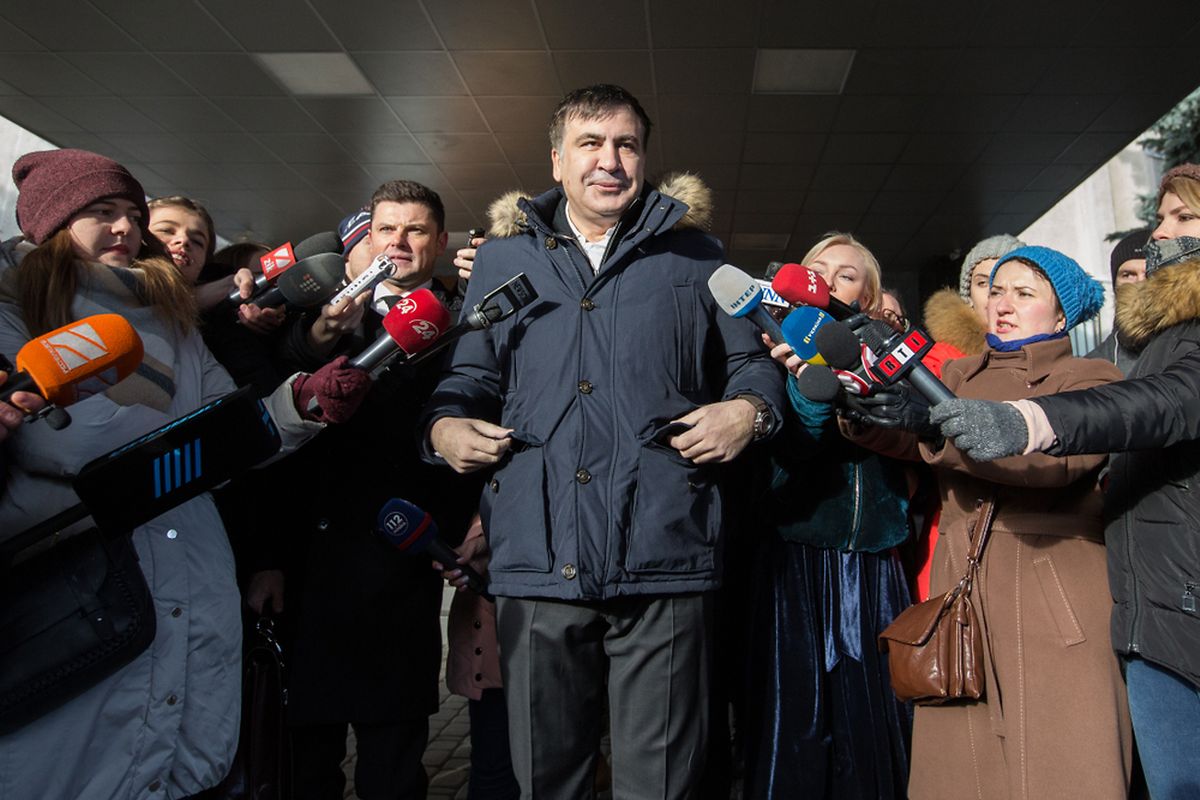By AFP
Published March 11, 2023

Rights groups have also criticised Georgia's authorities for barring several Kremlin critics from entering the country - Copyright AFP/File ALEXIS HUGUET
When thousands of Georgians protested this week to demand a bill similar to controversial Kremlin legislation be scrapped, some Russian exiles joined rallies that would have been unthinkable in their homeland.
Viktor Lyagushkin, 52, is one of tens of thousands of Russians who fled to Georgia in the aftermath of Moscow’s invasion of Ukraine last year.
He joined the mass protests in Tbilisi that erupted after parliament gave initial backing to a bill on “foreign agents” reminiscent of Russian legislation used to suppress Kremlin critics.
Lyagushkin said “many” Russians but also Ukrainians had joined several days of the anti-government protests in Tbilisi this week.
“The possibility of going out and expressing disagreement is important for them because that’s what they were deprived of in Russia,” he said.
The legislation was dropped after three days of youth-led protests and an outcry from the West.
“I decided to participate because I am not indifferent to the fate of Georgia,” Lyagushkin added.
“I have many Georgian friends and I wanted to support them,” said the National Geographic photographer, dressed in yellow-and-blue clothes in the colours of the Ukrainian flag.
Lyagushkin used to live between Moscow, Kyiv, and Tbilisi before settling in Georgia after the Kremlin unleashed an all-out war on Ukraine in 2022.
– ‘I had to show support’ –
Since President Vladimir Putin sent troops into Ukraine, Russian authorities have ramped up a crackdown on dissent, jailing opposition activists or forcing them into exile.
Since the beginning of the war, thousands of cases were opened against Russians for “discrediting” Moscow’s army and some people were jailed.
Lyagushkin said he did not think that a popular opposition movement similar to what he has seen in Georgia could emerge in Russia.
He likened the protests in Georgia to a popular uprising in Kyiv that ousted Kremlin-friendly leaders from power in 2014, sparking a confrontation with Russia.
Bogdana Vashchenko, a Ukrainian who lived in Moscow for more than a decade, could not agree more.
The 46-year-old writer and journalist, who now lives in Tbilisi, took part in protests in the South Caucasus country together with Lyagushkin.
“As a Ukrainian and a human, I knew I had to show support for Georgia and my Georgian friends,” she told AFP.
Vashchenko said “the lies” of the Georgian ruling party were similar to those of Ukraine’s pro-Russian President Viktor Yanukovych, who was ousted in 2014.
“It’s as if they had the same agenda, the same plan,” she said.
– ‘Nothing will change’ –
But some Russian exiles here have other issues on their mind and seem indifferent to the recent political turmoil.
In bars and cafés just a few streets from where protests had taken place outside parliament, their conversations on Friday night centred around rising electricity prices, immigration prospects, and memories of their homeland.
Vladimir Kirsanov, who is in his thirties, arrived in Georgia in September after Putin announced a military mobilisation. He now wants to move to Argentina together with his partner Margarita, but they are not sure they can afford the move.
“Nothing will change in Russia for the next 10 years,” said Kirsanov, adding that he had no interest in meddling in Georgia’s affairs.
He also does not want to have problems with law enforcement in Georgia, where he has to stay for at least six months to be able to apply for a Schengen visa.
The Georgian authorities have recently come under criticism from rights groups and the opposition for barring some Kremlin critics from entering the country. Some observers have warned of the authorities’ dangerous drift towards Moscow.
Vashchenko sees the Russian people’s political apathy as the “root of evil” that bedevils the country.
She said it was important to stand by Georgia, which fought a five-day war with Russia in 2008. And a new war between Russia and Georgia could not be ruled out, she added.
“Yes, we are afraid, and I think Georgians are also afraid of the possibility of an invasion,” she said.
“But if we stay home in fear, then they will definitely come.”
Georgia targets ‘foreign agents’ as critics allege tilt to Putin

For nearly two decades since the 2003 “Rose Revolution,” Georgia sought to escape Russia’s shadow by integrating itself with the European Union and NATO.
Now, critics say, it risks tilting back toward Moscow, especially as the government pushes through legislation similar to an instrument President Vladimir Putin used to crush dissent in Russia.
A draft “foreign agent” bill that lawmakers began to debate last week would target media and non-governmental organizations in an initiative backed by the ruling Georgian Dream party. It would indirectly promote Russian interests by curbing the influence of groups that largely rely on funding from the US and Europe.
Georgia’s muted response to Putin’s invasion of Ukraine has already drawn strong criticism inside the country — which fought a brief 2008 war with Russia — and from officials in Kyiv.
“The intention of the authors of the Georgian bill is not to control the influence of the enemy country,” Nino Lapiashvili, director of Tbilisi State University’s Institute for European Studies, said by phone “It’s an unjustified attempt to retaliate against the substantiated criticism of governmental policies of those Georgian civil society organizations that are financed by the EU, USA or other Western strategic partners.”

Fines, Jail
The proposal threatens fines and imprisonment for up to five years to organizations or individuals who receive at least 20% of their income from abroad and fail to register with the government as an “agent of foreign influence.”
The standoff over the draft law could culminate within days as the proposed legislation makes its way through parliament, worsening tensions in the streets. Police arrested at least 36 people at protests Thursday outside parliament, with more than half still in detention.
Opposition parties, media and civil society groups have denounced what they call “the Russian law,” while leading business associations in Georgia warned the measure risks undermining the Caucasus republic’s already fading chances of gaining EU membership. President Salome Zourabichvili, who was elected as Georgian Dream’s candidate, has said she’ll veto the law, which has been sharply criticized by the EU and the US.
Balancing Act
Although Prime Minister Irakli Garibashvili condemned Russia’s “unjustified” aggression against Ukraine, he hasn’t imposed sanctions on Russia and has refused to provide military aid to Kyiv, accusing opponents of his policy of seeking to “create a second front in Georgia.”
The ability to maintain trade ties with Russia, alongside the arrival of tens of thousands fleeing the Kremlin’s mobilization, has meant a boon for the $25 billion economy. It’s resulted in what a former central bank governor has called a “windfall” revenue of about $2 billion last year, more than quintuple what Georgia received in 2021.
The controversy has erupted at a sensitive time for Georgia. Former President Mikheil Saakashvili, who led the 2003 pro-western revolution, is languishing in prison as the government in Tbilisi faces increasingly loud expressions of concern for his health from leaders in Europe and in Moldova and Ukraine, which last year moved ahead of Georgia in the race for EU membership.

The government says Saakashvili crossed into the country illegally in 2021 and that his health is being provided for.
Supporters say the law is necessary to ensure political “transparency” and insist that it’s similar to the Foreign Agents Registration Act in the US.
The legislation will enable “society to be informed about who is who,” said Eka Sepashvili, a member of the People’s Power faction in Georgia’s parliament that proposed the legislation with backing from Georgian Dream.
Sepashvili said two different versions of the bill adopted by parliament will be sent to the Venice Commission for review and the final draft will depend on which one it approves. Voting in the final two readings will take place after receiving the opinion of the Council of Europe’s legal advisory body, she said.
Many Georgian opposition media outlets and non-governmental organizations rallying outside the parliament building in the capital, Tbilisi, said they’d refuse to register should the law require them to do so. Paata Zakareishvili, a political analyst and former government official, said he’d rather go to jail.
“Let them arrest me, I don’t care,” he told reporters Sunday.
©2023 Bloomberg L.P.
No comments:
Post a Comment